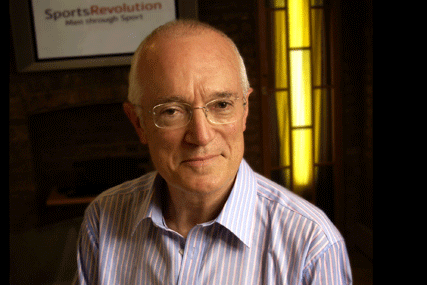
MW: You have spent 50 years in media, earning yourself the title "the godfather of the media industry" for founding TMD (now Carat) and CIA (now Mediaedge:cia). So why aren't you sitting on a beach?
CI: I am an entrepreneur at heart - I get a kick out of building small businesses and helping them grow - so I decided to invest in Sports Revolution and become the company's executive chairman in autumn 2008. I am becoming increasingly interested in the space where media and sport meet, and there is a huge amount more that can be done on the commercial side - it surprised me that relatively small amounts of advertising money are coming into sports with huge audiences. Of course, it helps that I am nutty about football...
MW: What does Sports Revolution offer advertisers and media agencies?
CI: Sports Revolution is the largest media rights owner in UK football stadia, with media space in more than 75 UK football clubs, ranging from static posters to HD digital screens and field and experiential marketing. Last year, we bought Sports TV, which provides local football news to football clubs, and our consultancy division Sports Insight advises clients and media agencies on using sports as a marketing tool. We have also formed a new sports sponsorship consultancy, SMG Sports, which is a partnership with Starcom Mediavest Group.
MW: But there are plenty of sports sponsorship agencies and media agencies that say they ‘do' sport. What sets you apart?
CI: Our contacts with the football clubs. Our managing partner Vange Kourentis is the former business development manager for Manchester United, so our understanding of the football clubs and their needs is extremely strong. In addition, our managing director Antony Marcou has worked at media agencies and media owners, so he understands agencies and clients, and I bring the big picture of where we want to go and how we want to achieve it.
MW: So what are your plans for the business?
CI: We are interested in media opportunities outside football stadia, such as websites and mobile apps, and we are looking to diversify away from football into other sports over the next year. We also want to become more international-facing, having observed the potential for increasing global commercial revenue in sports such as horse racing. We are in discussions about commercial deals with a number of partners, and we expect to announce the first deal in three months time.
MW: How is technology changing the media landscape in sport? Are the UK's football clubs making the most of their media potential?
CI: Digital pitch-side ads, which are opening up the Premier League to global brands, are the fastest-growing part of our business. In addition, revenue from mobile is tiny, but the mobile phone is consumers' most important possession. We believe mobile is a promising source of revenue for football clubs, such as action replays, streaming stats or pointing your mobile at an ad to request information - even if it's just the location of the nearest curry house.
MW: Which football team do you support?
CI: I grew up in Surrey, so my grass-roots club is Woking FC, which I have supported since I was 11 and then bought in 2002 when I heard it was about to go belly-up. I also support Manchester United because they were winning everything when I first got into football - I became a fan for all the wrong reasons.
MW: What is your advice to media agencies planning campaigns for their sports-related clients around the football World Cup?
CI: A number of people on the media agency side are only now waking up to the fact that you must start with the atmosphere at the event and plan from the perspective of the fans. Football gives you an audience of 3.6 million absolutely committed men each month, so if you have a sports-related message you must start by thinking from the perspective of the audience - it is not a bolt-on.
MW: How do you rate England's chances in the tournament?
CI: I think England will reach the semi-final, but I would love to be wrong in the right way.


.jpg)


.jpg)